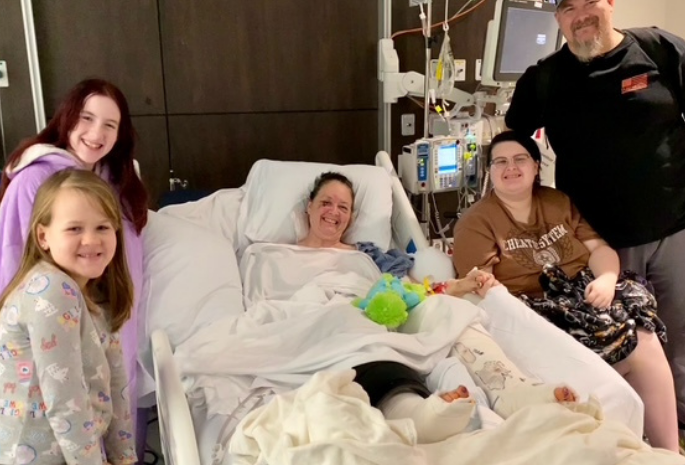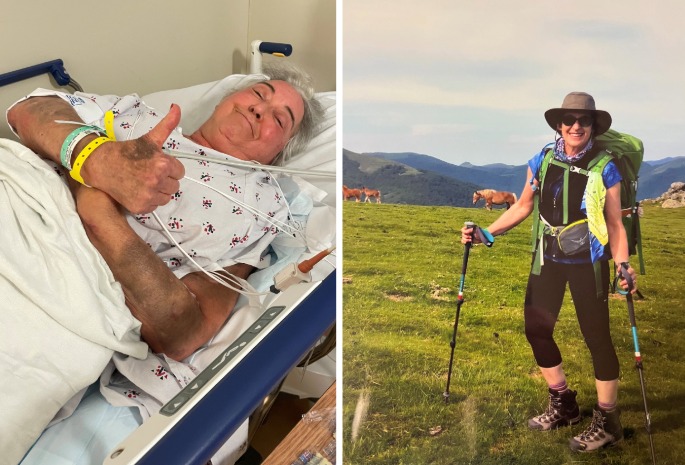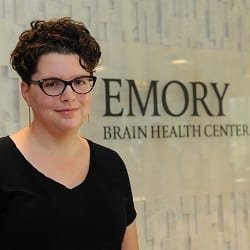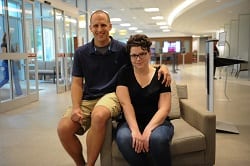Seizure-Free After Epilepsy Surgery – Real Patients, Real Stories
Brain health is critical to your quality of life.
Learn more about our world-renowned care . Make an appointment online, find a provider or call 404-778-7777 to schedule an appointment.
“I was very dependent on my husband for everything,” recalled Gatlin-Martin, a resident of the Savannah area. “He was serving as my husband and chauffeur. That was very frustrating for me. I couldn’t run out to the grocery store if my child was feeling hungry and we’d run out of crackers. I couldn’t do the things I needed to do to get through daily life.”
New and Advanced Approaches to Epilepsy Treatment
Emory Brain Health Center
The brain is the center of all your thoughts, behavior and movement. That’s why brain health care at Emory Healthcare is transforming patient-centered care by bringing more than 400 experts subspecialized in every type of brain condition together. From stroke to brain tumors to epilepsy and psychiatric conditions—we can treat all diseases and conditions of the brain.
Our world-renowned center offers patients accurate diagnosis and custom treatment options to deliver lifesaving care. Unlike any other health care system in the country, we combine five brain health specialties: neurology, neurosurgery, psychiatry & behavioral sciences, rehabilitation medicine, and sleep medicine under one roof.
With our creative partnerships between specialties, we're able to quickly diagnose conditions and develop treatment plans that change patients' lives. You can learn more about some of our team’s remarkable work in "Your Fantastic Mind," a PBS television series syndicated throughout the United States.
Related Posts
-
 In 1989, Dr. Daniel Barrow, a neurosurgeon at Emory Healthcare, performed a life-saving surgery on a pregnant woman experiencing a ruptured aneurysm, ultimately saving both her life and the life of her unborn daughter.
In 1989, Dr. Daniel Barrow, a neurosurgeon at Emory Healthcare, performed a life-saving surgery on a pregnant woman experiencing a ruptured aneurysm, ultimately saving both her life and the life of her unborn daughter. -
 Astra Adams was in constant, sometimes excruciating pain after a devastating car crash. Neurosurgeon Dr. Boulis and the high-risk, high-reward DREZ procedure at Emory Healthcare changed her life.
Astra Adams was in constant, sometimes excruciating pain after a devastating car crash. Neurosurgeon Dr. Boulis and the high-risk, high-reward DREZ procedure at Emory Healthcare changed her life. -
 Carol's health was in a multi-year, mysterious decline—until a tiny, pea-sized tumor was discovered. Emory's pituitary experts uncovered the cause and the path forward.
Carol's health was in a multi-year, mysterious decline—until a tiny, pea-sized tumor was discovered. Emory's pituitary experts uncovered the cause and the path forward.
Recent Posts
-
Feb 6, 2026
-
Jan 13, 2026
-
Jan 8, 2026
-
Jan 7, 2026
-
Jan 5, 2026
-
Dec 11, 2025



